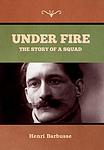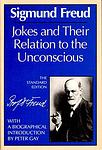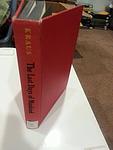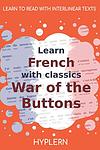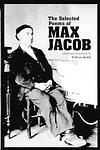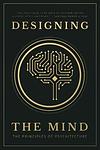The Greatest French, Austrian Books From 1910 to 1919
Click to learn how this list is calculated.
This list represents a comprehensive and trusted collection of the greatest books. Developed through a specialized algorithm, it brings together 287 'best of' book lists to form a definitive guide to the world's most acclaimed books. For those interested in how these books are chosen, additional details can be found on the rankings page.
Genres
Countries
Date Range
Reading Statistics
Click the button below to see how many of these books you've read!
Download
If you're interested in downloading this list as a CSV file for use in a spreadsheet application, you can easily do so by clicking the button below. Please note that to ensure a manageable file size and faster download, the CSV will include details for only the first 500 books.
Download-
1. In Search of Lost Time by Marcel Proust
This renowned novel is a sweeping exploration of memory, love, art, and the passage of time, told through the narrator's recollections of his childhood and experiences into adulthood in the late 19th and early 20th century aristocratic France. The narrative is notable for its lengthy and intricate involuntary memory episodes, the most famous being the "madeleine episode". It explores the themes of time, space and memory, but also raises questions about the nature of art and literature, and the complex relationships between love, sexuality, and possession.
-
2. Le Grand Meaulnes by Henri Alain-Fournier
The novel centers around a mysterious and charismatic adolescent, Augustin Meaulnes, who arrives at a rural school in Sologne, France, and quickly becomes the focus of intrigue among his peers. The story is narrated by his friend, François Seurel, who recounts the adventures that ensue when Meaulnes stumbles upon a surreal estate where a lavish party is taking place, leading him to meet and fall for the enchanting Yvonne de Galais. The tale weaves themes of lost love, yearning, and the painful transition from the innocence of childhood to the complexities of adulthood, as Meaulnes becomes obsessed with finding the estate and Yvonne again, embarking on a quest that will profoundly affect all involved.
-
3. Alcools by Guillaume Apollinaire
"Alcools" is a collection of poems that explores various themes such as love, loss, and the passage of time. The work is notable for its innovative use of form and syntax, often eschewing traditional punctuation and capitalization. The poems are rich in imagery and symbolism, drawing on a wide range of influences from mythology to modern urban life. The collection is considered a landmark of modernist literature, reflecting the author's unique vision and distinctive poetic voice.
-
4. Locus Solus by Raymond Roussel
"Locus Solus" is an avant-garde novel that revolves around the eccentric millionaire inventor, Canterel, who invites a group of guests to visit his estate, Locus Solus. Here, he displays a series of bizarre inventions, each with a detailed backstory. The inventions include a diamond-encrusted machine that constructs intricate mosaics using human teeth, a large glass cage filled with preserved human heads that reenact key moments from their lives, and a device that uses preserved body parts to perform a grotesque ballet. The narrative is heavily detailed and surreal, creating a unique and intriguing exploration of art, life, and the human condition.
-
5. Fantômas by Marcel Allain, Pierre Souvestre
The book is a thrilling detective novel set in Paris, revolving around the character of Fantômas, a master criminal with no morals or scruples. Fantômas is a master of disguise, capable of assuming any identity at will, and his criminal activities range from petty theft to murder. The book follows the relentless pursuit of Fantômas by the determined Inspector Juve, leading to a series of exciting and suspenseful encounters.
-
6. Under Fire by Henri Barbusse
"Under Fire" is a gripping first-person narrative of life in the trenches during World War I. The protagonist, a French soldier, provides an intimate and harrowing account of the physical and psychological toll of warfare. The book presents a grim picture of the war, highlighting the camaraderie among soldiers, the horror of the battlefield, the senseless loss of life, and the disillusionment of those who must endure it. The narrative is known for its stark realism and profound anti-war sentiments.
-
7. Impressions of Africa by Raymond Roussel
In this surrealistic novel, a group of Europeans are stranded in Africa after their ship is hijacked by a local monarch. While held captive, each of the characters narrates a fantastical tale or performance, showcasing their unique talents and skills. The narrative is filled with bizarre inventions, intricate wordplay, and a dizzying array of subplots, all of which are eventually woven together in a complex and cryptic manner. The novel is a testament to the author's imagination and his ability to create a world that is both strange and captivating.
-
8. The Unconscious by Sigmund Freud
This book delves into the complex workings of the human mind, exploring the concept of the unconscious. The author posits that our conscious mind is only a small fraction of who we are, and that a vast part of our thoughts, feelings, and behaviors are driven by unconscious processes. He discusses theories on dreams, slips of the tongue, and neuroses, arguing that these are all manifestations of unconscious desires and conflicts. The book provides a foundation for understanding psychoanalysis and the author's influential theories on the human psyche.
-
9. Calligrammes by Guillaume Apollinaire
"Calligrammes" is a collection of free verse poetry and typographical experiments by a French poet. The poems are noted for their use of complex visual layouts and playful language, which often incorporate elements of surrealism and cubism. The collection is also notable for its exploration of various themes, including love, war, and the passage of time. The title of the collection refers to the poet's use of words and phrases to create a visual image, or calligram, on the page.
-
10. Three plays: The hostage, Crusts, The humiliation of the father by Paul Claudel
This collection of three plays offers a deep exploration of human emotions, societal norms and familial relationships. The first play, 'The Hostage', revolves around the complexities of love and sacrifice. The second play, 'Crusts', delves into the struggles of poverty and the human spirit's resilience. The final play, 'The Humiliation of the Father', portrays the dynamics of a dysfunctional family and the impact of parental behaviour on children. Each play, while distinct in their narratives, collectively provides a profound commentary on human nature and society.
-
11. La Jeune Parque by Paul Valéry
This work is a profound and intricate poem that delves into the inner turmoil and reflections of a young woman standing at the crossroads of life. Through its dense and allusive verse, the poem explores themes of love, choice, and identity, weaving together classical mythology with personal introspection. The young woman's contemplation of her past and future, her desires, and her fears, serves as a vehicle for broader philosophical inquiries into the nature of the self, the transient nature of beauty and youth, and the search for meaning in a seemingly indifferent universe. The poem's rich imagery and complex structure have made it a landmark of modernist literature, celebrated for its linguistic innovation and its deep, resonant exploration of the human condition.
-
12. Le Coq Et L'arlequin by Jean Cocteau
This book is a notable manifesto that critiques the influence of German music on French national identity, advocating instead for a return to French musical traditions and the embrace of modernity. Written in the early 20th century, it emphasizes the importance of simplicity, clarity, and the incorporation of elements from popular culture and other arts into music. The author, a prominent figure in the avant-garde movement, calls for a rejection of Wagnerism and a celebration of French composers and artists who embody these principles. Through its vivid prose and passionate argumentation, the work seeks to inspire a cultural renaissance that redefines French music and its role in the broader artistic landscape.
-
13. Golem by Gustav Meyrink
This novel is a dark and atmospheric tale set in the mystical alleys of Prague's Jewish ghetto. It weaves the story of a man who, haunted by amnesia, embarks on a surreal journey to uncover his identity. Along the way, he encounters a series of bizarre and enigmatic characters, including the mythical Golem, a creature molded from clay and brought to life through ancient Kabbalistic magic. The narrative delves deep into themes of existential dread, mysticism, and the blurred lines between reality and illusion, all while painting a vivid picture of early 20th-century Prague and its rich Jewish folklore. Through its complex plot and haunting imagery, the book explores the depths of human consciousness and the mysteries that lie beyond the surface of the known world.
-
14. The Last Days of Mankind by Karl Kraus
"The Last Days of Mankind" is a satirical play that provides a critical commentary on the socio-political climate during World War I. The narrative presents a stark portrayal of the absurdity of war and the destructive forces of propaganda, bureaucracy, and nationalism. The author uses a variety of literary techniques, including parody, satire, and direct quotes from contemporary sources, to highlight the folly and tragedy of war. The play is known for its unique style, rich language, and its profound critique of society and culture during a time of great upheaval and conflict.
-
15. The Vagabond by Colette
This novel follows the journey of Renée Néré, a 33-year-old divorcee who, after enduring the betrayal and abandonment of her husband, embarks on a path of self-discovery and independence through her work as a music hall dancer. Set in early 20th-century France, the narrative delves into themes of love, freedom, and the quest for personal identity against the backdrop of societal expectations. As Renée grapples with the allure of new love and the prospect of sacrificing her newfound autonomy, the story explores the complexities of the human heart and the courage required to live life on one's own terms. Through her introspective and resilient protagonist, the author offers a poignant examination of the struggles and triumphs of a woman seeking to redefine herself beyond the confines of conventional relationships.
-
16. The Vatican Cellars by Andre Gide
The novel unfolds as a satirical adventure, delving into the complexities of faith, deception, and the human quest for meaning. Set against the backdrop of early 20th-century Europe, it follows the journey of Lafcadio, a young man whose paths cross with an eclectic mix of characters, including anarchists, aristocrats, and religious figures, each embroiled in their own pursuits of ideology, power, and salvation. Central to the plot is a meticulously planned hoax involving the Pope, which spirals into a series of events that challenge the characters' beliefs and intentions. Through its intricate narrative and sharp critique of societal norms, the book explores themes of morality, authenticity, and the absurdity of human endeavors.
-
17. The War Of The Buttons by Louis Pergaud
The book is a charming tale of rural French schoolboys from neighboring villages who engage in mock battles, with the ultimate trophy being the buttons and belts of their defeated opponents. This rivalry, filled with youthful pride and the desire to protect one's honor, escalates as the children strategize and skirmish, all while grappling with the themes of camaraderie, tradition, and the transition from innocence to adolescence. The narrative, rich with humor and the simplicity of country life, ultimately explores the universal aspects of growing up and the bittersweet nature of childhood conflicts.
-
18. My Friend's Book by Anatole France
This narrative delves into the complexities of friendship, intellectual pursuit, and the often blurred lines between reality and the world of books. Through the lens of a protagonist who becomes deeply engrossed in his friend's literary work, the story explores themes of obsession, the impact of literature on life, and the profound connections that can form through shared intellectual endeavors. As the protagonist navigates his relationship with his friend and the book, readers are invited to reflect on the power of written words to shape our perceptions, relationships, and understanding of the world around us.
-
19. Lafcadio's Adventure by Andre Gide
The book is a philosophical tale that follows the journey of a young, innocent man who is thrust into a world of temptation and moral ambiguity. As he travels, he encounters various characters and experiences that challenge his understanding of virtue, vice, and the complexities of human nature. The protagonist's adventure becomes a metaphor for the quest for self-knowledge and the struggle to reconcile the purity of one's inner self with the often-corrupting influences of society and personal desire. Through his experiences, the book explores themes of innocence, experience, and the search for authenticity in a world that often rewards artifice and compromise.
-
20. The Mystery Of The Charity Of Joan Of Arc by Charles Péguy
The book in question is a lyrical and philosophical meditation on the life and legacy of Joan of Arc, focusing particularly on her acts of charity and humility. Through a blend of poetry and prose, the narrative delves into the spiritual and moral dimensions of Joan's character, exploring the paradoxes of her saintliness and her role as a warrior. The work reflects on the nature of faith, the virtue of charity, and the profound impact Joan of Arc has had on French national identity and Catholic spirituality. It is a contemplative homage to a historical figure that transcends the boundaries of time, inviting readers to ponder the deeper meanings of heroism and sanctity.
-
21. Poems Of Max Jacob by Max Jacob
This collection brings together the lyrical and inventive works of a prominent figure in the early 20th-century avant-garde literary scene. The poems are characterized by their blend of surrealism, humor, and melancholy, reflecting the author's complex inner world and his experiences as a Jewish homosexual man in a tumultuous period of history. The poet's unique voice and experimental style challenge traditional poetic forms, incorporating elements of cubism and other contemporary artistic movements, while also delving into themes of spirituality, identity, and the struggles of the human condition.
-
22. Poems Of Georg Trakl by Georg Trakl
This collection presents a haunting and evocative body of work from an early 20th-century poet known for his intense imagery and lyrical exploration of themes such as decay, death, and nature. The poems delve into the spiritual and existential crises of modernity, often reflecting the poet's own tormented psyche and the tumultuous backdrop of World War I. Rich in symbolism and dark beauty, the verses capture a profound sense of melancholy and an acute awareness of the human condition, leaving readers with a lingering sense of both despair and transcendence.
-
23. Instincts and Their Vicissitudes by Sigmund Freud
"Instincts and Their Vicissitudes" is a psychological analysis that explores the concept of instincts, their transformation, and their impact on human behavior. The book delves into the complexities of human instincts, proposing that they can be suppressed, redirected, or even reversed, and discusses their role in shaping our actions, desires, and anxieties. The author also examines the relationship between instincts and the conscious and unconscious mind, offering a comprehensive understanding of human psychology.
-
24. Thoughts for the Times on War and Death by Sigmund Freud
This book is a profound exploration of the psychological impact of war and death on the human psyche. The author, a renowned psychologist, delves into the collective guilt and anxiety experienced by society during wartime, and the denial of death's inevitability as a self-preserving mechanism. He also discusses the disillusionment that arises when the veneer of civilization is stripped away, revealing the primal instincts beneath. The book is a deep, philosophical discussion about the human condition, morality, and the psychological consequences of war and death.
-
25. Repression by Sigmund Freud
This book delves into the concept of repression, a fundamental aspect of psychoanalytic theory. The author explores the idea that individuals often repress memories, particularly those associated with trauma or discomfort, pushing them into the unconscious mind. This repression, however, can lead to various psychological issues such as anxiety, depression, and neurosis. The book also discusses the therapeutic process of making the unconscious conscious, enabling individuals to confront and deal with these repressed memories.
Reading Statistics
Click the button below to see how many of these books you've read!
Download
If you're interested in downloading this list as a CSV file for use in a spreadsheet application, you can easily do so by clicking the button below. Please note that to ensure a manageable file size and faster download, the CSV will include details for only the first 500 books.
Download




